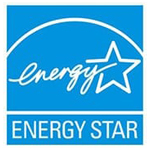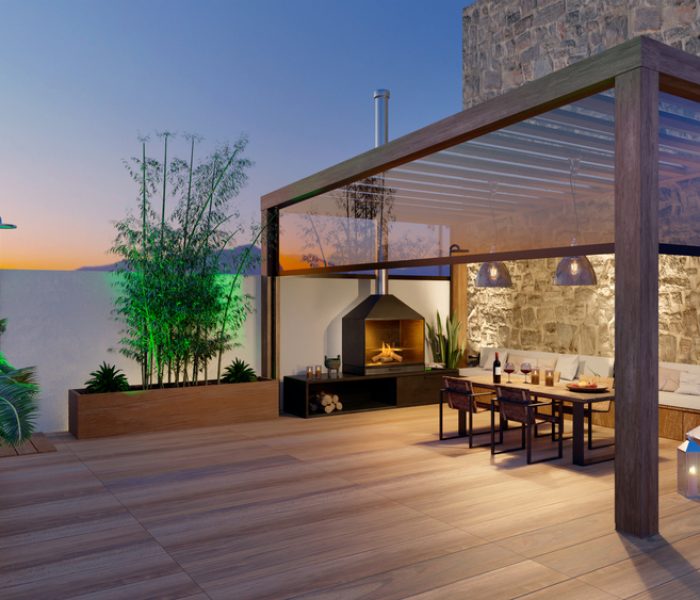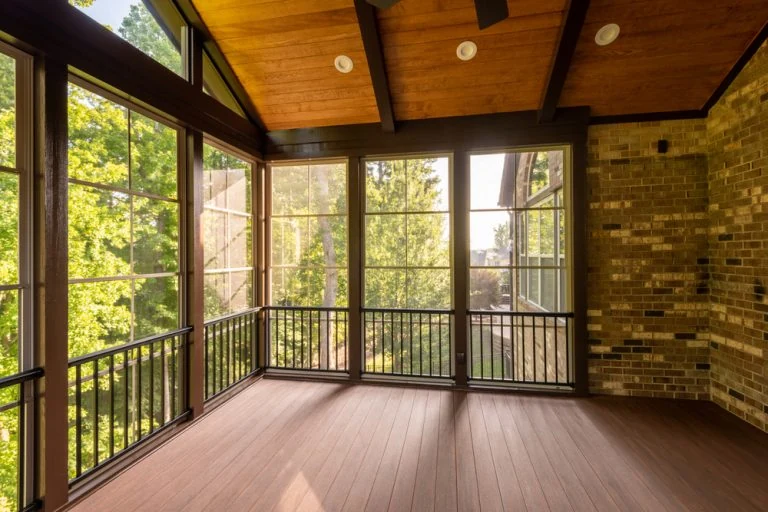
Patio Covers in Levittown, NY
Provider of Premium Sunrooms, Addition Solutions, Pergolas, LifeRoom, LifeRoom Louvered Systems, and more for all residents in Nassau County!
Get a free estimate
Awards
With our many years of experience we have earned many home remodeling awards we take pride in.




Client Testimonials
striving for great experiences

Read More
I had an exceptional experience with Four Seasons Sunrooms. They were customer satisfaction oriented and their prices were by far the most reasonable. They came out to assess my needs right away, and I had received great design advice and prompt appointments.

Read More
They are professional and friendly people who took the time to explain how the steps leading up to the completion of the sunroom and kept up with communication along the way. I would highly recommend them to any of my friends and family!

Read More
We love our new sunroom! Four Seasons worked with us to get all the necessary permits and town hearings to move forward. The workers were hard working and courteous, in very cold weather! We are enjoying our new beautiful living space.

Read More
Their products are beautiful, plus there's so many sunroom styles to choose from. I'm really impressed by the impeccable work they've done. In addition, their staff members are super friendly!
Previous
Next
Enjoy the Benefits of Patio Covers in Levittown, NY
Protect Your Outdoor Space from Nassau County’s Elements
Patio covers are an excellent addition to your outdoor living area in Levittown, NY. At Four Seasons Sunroom, we take pride in offering top-quality patio covers that provide both protection and style. Our covers are meticulously designed to shield your patio from the unpredictable weather conditions that Nassau County experiences, including intense sun, heavy rain, and even occasional snowfall. With our durable patio covers, you can enjoy your outdoor space year-round, regardless of the weather Nassau County throws your way.
Our commitment to using premium materials ensures that our patio covers are built to withstand the elements and require minimal maintenance. Made from durable materials such as aluminum, vinyl, or wood, our covers are designed to be long-lasting and resistant to fading, cracking, or warping. By investing in our high-quality patio covers, you can relax and entertain on your patio without worrying about the damaging effects of the climate in Levittown, NY.
To further ensure the longevity of your patio cover, our team of experts will assist you in selecting the ideal design and material that suits your specific needs. We offer a wide range of styles and finishes, allowing you to customize your patio cover to complement your home’s architecture and personal taste. With Four Seasons Sunroom, you can trust that your patio cover will not only provide protection but also enhance the aesthetic appeal of your outdoor space. Contact us at 516-253-2329 for a free consultation.


Extend Your Living Space with a Functional Patio Cover
A patio cover from Four Seasons Sunroom can transform your patio into a versatile outdoor retreat, extending your living space and providing countless opportunities for relaxation and entertainment. Whether you envision a cozy lounge area, an outdoor dining space, or a place to gather with friends and family in Levittown, NY, our patio covers are designed to meet your specific requirements.
With the addition of a patio cover, you’ll have a shaded area where you can enjoy the outdoors while remaining protected from the sun’s harmful UV rays. This not only allows you to spend more time outdoors but also provides a comfortable space for hosting gatherings or simply unwinding after a long day.
Aesthetically Pleasing and Value-Adding Addition to Your Home
Investing in a patio cover not only enhances your outdoor living experience but also adds value and curb appeal to your property. At Four Seasons Sunroom, we understand the importance of a well-designed and aesthetically pleasing patio cover that complements your home’s architecture and style. With our wide selection of design options, you can choose a patio cover that seamlessly integrates with your existing exterior features, enhancing the overall visual appeal of your property.
In addition to the aesthetic and financial benefits, a patio cover also helps to protect your outdoor furniture and equipment from Nassau County’s weather conditions. The cover acts as a shield, preventing sun damage, rainwater stains, or the accumulation of debris. This protection ensures that your outdoor furniture and equipment remain in excellent condition, prolonging their lifespan and saving you money in the long run.
Enhance your outdoor living with a stylish patio cover from Four Seasons Sunroom. Our covers protect you from Nassau County’s elements while adding value and appeal to your property. Transform your patio into a retreat that offers protection and enhances your home’s value in Levittown, NY. Contact us at 516-253-2329 to discover the perfect patio cover solution for your home and enjoy outdoor living at its finest.

Call Us Today!!
The building firm, Levitt & Sons, headed by Abraham Levitt and his two sons, William and Alfred, built four planned communities called “Levittown”, in New York, Pennsylvania, New Jersey, and Puerto Rico; the Levittown in New York was the first. Additionally, Levitt & Sons’ designs are featured prominently in the older portion of Buffalo Grove, Illinois; Vernon Hills, Illinois; Willingboro Township, New Jersey; the Belair section of Bowie, Maryland; and the Greenbriar section of Fairfax, Virginia.
The Levitt firm began before World War II, as a builder of custom homes in upper middle-class communities on Long Island. During the war, however, the home building industry languished under a general embargo on private use of scarce raw materials. William “Bill” Levitt served in the Navy in the Seabees – the service’s construction battalions – and developed expertise in the mass-produced building of military housing using uniform and interchangeable parts. He was insistent that a postwar building boom would require similar mass-produced housing, and was able to purchase options on large swaths of onion and potato fields in undeveloped sections of Long Island.
Returning to the firm after war’s end, Bill Levitt persuaded his father and brother to embrace the utilitarian system of construction he had learned in the Navy. With his brother, Alfred, who was an architect, he designed a small one-floor house with an unfinished “expansion attic” that could be rapidly constructed and as rapidly rented to returning GIs and their young families. Levitt & Sons built the community with an eye towards speed, efficiency, and cost-effective construction; these methods led to a production rate of 30 houses a day by July 1948.They used pre-cut lumber and nails shipped from their own factories in Blue Lake, California, and built on concrete slabs, as they had done in a previous planned community in Norfolk, Virginia. This necessitated negotiating a change in the building code, which prior to the building of this community, did not permit concrete slabs. Given the urgent need for housing in the region, the town agreed. Levitt & Sons also controversially utilized non-union contractors in the project, a move which provoked picket lines. On the other hand, they paid their workers very well and offered all kinds of incentives that allowed them to earn extra money, so that they often could earn twice as much a week as elsewhere. The company also cut out middlemen and purchased many items, including lumber and televisions, directly from manufacturers. The building of every house was reduced to 26 steps, with sub-contractors responsible for each step. His mass production of thousands of houses at virtually the same time allowed Levitt to sell them, with kitchens fully stocked with modern appliances, and a television in the living room, for as little as $8,000 each (equal to $92,721 today), which, with the G.I. Bill and federal housing subsidies, reduced the up-front cost of a house to many buyers to around $400 (equal to $4,636 today).
Learn more about Levittown.Useful links for Levittown, NY
Additional Links
Here are some general contractor-related links:
Albertson
Atlantic Beach
Baldwin
Baldwin Harbor
Barnum Island
Baxter Estates
Bay Park
Bayville
Bellerose
Bellerose Terrace
Bellmore
Bethpage
Brookville
Carle Place
Cedarhurst
Centre Island
Cove Neck
East Atlantic Beach
East Garden City
East Hills
East Massapequa
East Meadow
East Norwich
East Rockaway
East Williston
Elmont
Farmingdale
Floral Park
Flower Hill
Franklin Square
Freeport
Garden City
Garden City Park
Garden City South
Glen Cove
Glen Head
Glenwood Landing
Great Neck
Great Neck Estates
Great Neck Gardens
Great Neck Plaza
Greenvale
Harbor Hills
Harbor Isle
Hempstead
Herricks
Hewlett
Hewlett Bay Park
Hewlett Harbor
Hewlett Neck
Hicksville
Inwood
Island Park
Jericho
Kensington
Kings Point
Lake Success
Lakeview
Lattingtown
Laurel Hollow
Lawrence
Levittown
Lido Beach
Locust Valley
Long Beach
Lynbrook
Malverne
Malverne Park Oaks
Manhasset
Manhasset Hills
Manorhaven
Massapequa
Massapequa Park
Matinecock
Merrick
Mill Neck
Mineola
Munsey Park
Muttontown
New Cassel
New Hyde Park
North Bellmore
North Hempstead
North Hills
North Lynbrook
North Massapequa
North Merrick
North New Hyde Park
North Valley Stream
North Wantagh
Oceanside
Old Bethpage
Old Brookville
Old Westbury
Oyster Bay
Oyster Bay Cove
Plainedge
Plainview
Plandome
Plandome Heights
Plandome Manor
Point Lookout
Port Washington
Port Washington North
Rockville Centre
Roosevelt
Roslyn
Roslyn Estates
Roslyn Harbor
Roslyn Heights
Russell Gardens
Saddle Rock
Saddle Rock Estates
Salisbury
Sands Point
Sea Cliff
Seaford
Searingtown
South Farmingdale
South Floral Park
South Hempstead
South Valley Stream
Stewart Manor
Syosset
Thomaston
Uniondale
University Gardens
Upper Brookville
Valley Stream
Wantagh
West Hempstead
Westbury
Williston Park
Woodbury
Woodmere
Woodsburgh
Amagansett
Amityville
Aquebogue
Asharoken
Babylon
Baiting Hollow
Bay Shore
Bay Wood
Bayport
Belle Terre
Bellport
Blue Point
Bohemia
Brentwood
Bridgehampton
Brightwaters
Brookhaven
Calverton
Center Moriches
Centereach
Centerport
Central Islip
Cold Spring Harbor
Commack
Copiague
Coram
Cutchogue
Deer Park
Dix Hills
East Farmingdale
East Hampton
East Hampton North
East Islip
East Marion
East Moriches
East Northport
East Patchogue
East Quogue
East Setauket
East Shoreham
Eastport
Eatons Neck
Elwood
Farmingville
Fire Island
Flanders
Fort Salonga
Gilgo
Gordon Heights
Great River
Greenlawn
Greenport
Halesite
Hampton Bays
Hauppauge
Head of the Harbor
Holbrook
Holtsville
Huntington
Huntington Bay
Huntington Station
Islandia
Islip
Islip Terrace
Jamesport
Kings Park
Lake Grove
Lake Ronkonkoma
Laurel
Lindenhurst
Lloyd Harbor
Manorville
Mastic
Mastic Beach
Mattituck
Medford
Melville
Middle Island
Miller Place
Montauk
Moriches
Mount Sinai
Napeague
Nesconset
New Suffolk
Nissequogue
North Amityville
North Babylon
North Bay Shore
North Bellport
North Great River
North Haven
North Lindenhurst
North Patchogue
North Sea
Northampton
Northport
Northville
Northwest Harbor
Noyack
Oak Beach
Oakdale
Ocean Beach
Old Field
Orient
Patchogue
Peconic
Poquott
Port Jefferson
Port Jefferson Station
Quiogue
Quogue
Remsenburg
Ridge
Riverhead
Riverside
Rocky Point
Ronkonkoma
Sag Harbor
Sagaponack
Sayville
Selden
Setauket
Shelter Island
Shirley
Shoreham
Smithtown
Sound Beach
South Huntington
Southampton
Southold
Speonk
Springs
St. James
Stony Brook
Stony Brook University
Terryville
Tuckahoe
Village of the Branch
Wading River
Wainscott
Water Mill
West Babylon
West Bay Shore
West Hills
West Islip
West Sayville
Westhampton
Westhampton Beach
Wheatley Heights
Wyandanch
Yaphank
Albertson
Atlantic Beach
Baldwin
Baldwin Harbor
Barnum Island
Baxter Estates
Bay Park
Bayville
Bellerose
Bellerose Terrace
Bellmore
Bethpage
Brookville
Carle Place
Cedarhurst
Centre Island
Cove Neck
East Atlantic Beach
East Garden City
East Hills
East Massapequa
East Meadow
East Norwich
East Rockaway
East Williston
Elmont
Farmingdale
Floral Park
Flower Hill
Franklin Square
Freeport
Garden City
Garden City Park
Garden City South
Glen Cove
Glen Head
Glenwood Landing
Great Neck
Great Neck Estates
Great Neck Gardens
Great Neck Plaza
Greenvale
Harbor Hills
Harbor Isle
Hempstead
Herricks
Hewlett
Hewlett Bay Park
Hewlett Harbor
Hewlett Neck
Hicksville
Inwood
Island Park
Jericho
Kensington
Kings Point
Lake Success
Lakeview
Lattingtown
Laurel Hollow
Lawrence
Levittown
Lido Beach
Locust Valley
Long Beach
Lynbrook
Malverne
Malverne Park Oaks
Manhasset
Manhasset Hills
Manorhaven
Massapequa
Massapequa Park
Matinecock
Merrick
Mill Neck
Mineola
Munsey Park
Muttontown
New Cassel
New Hyde Park
North Bellmore
North Hempstead
North Hills
North Lynbrook
North Massapequa
North Merrick
North New Hyde Park
North Valley Stream
North Wantagh
Oceanside
Old Bethpage
Old Brookville
Old Westbury
Oyster Bay
Oyster Bay Cove
Plainedge
Plainview
Plandome
Plandome Heights
Plandome Manor
Point Lookout
Port Washington
Port Washington North
Rockville Centre
Roosevelt
Roslyn
Roslyn Estates
Roslyn Harbor
Roslyn Heights
Russell Gardens
Saddle Rock
Saddle Rock Estates
Salisbury
Sands Point
Sea Cliff
Seaford
Searingtown
South Farmingdale
South Floral Park
South Hempstead
South Valley Stream
Stewart Manor
Syosset
Thomaston
Uniondale
University Gardens
Upper Brookville
Valley Stream
Wantagh
West Hempstead
Westbury
Williston Park
Woodbury
Woodmere
Woodsburgh
Amagansett
Amityville
Aquebogue
Asharoken
Babylon
Baiting Hollow
Bay Shore
Bay Wood
Bayport
Belle Terre
Bellport
Blue Point
Bohemia
Brentwood
Bridgehampton
Brightwaters
Brookhaven
Calverton
Center Moriches
Centereach
Centerport
Central Islip
Cold Spring Harbor
Commack
Copiague
Coram
Cutchogue
Deer Park
Dix Hills
East Farmingdale
East Hampton
East Hampton North
East Islip
East Marion
East Moriches
East Northport
East Patchogue
East Quogue
East Setauket
East Shoreham
Eastport
Eatons Neck
Elwood
Farmingville
Fire Island
Flanders
Fort Salonga
Gilgo
Gordon Heights
Great River
Greenlawn
Greenport
Halesite
Hampton Bays
Hauppauge
Head of the Harbor
Holbrook
Holtsville
Huntington
Huntington Bay
Huntington Station
Islandia
Islip
Islip Terrace
Jamesport
Kings Park
Lake Grove
Lake Ronkonkoma
Laurel
Lindenhurst
Lloyd Harbor
Manorville
Mastic
Mastic Beach
Mattituck
Medford
Melville
Middle Island
Miller Place
Montauk
Moriches
Mount Sinai
Napeague
Nesconset
New Suffolk
Nissequogue
North Amityville
North Babylon
North Bay Shore
North Bellport
North Great River
North Haven
North Lindenhurst
North Patchogue
North Sea
Northampton
Northport
Northville
Northwest Harbor
Noyack
Oak Beach
Oakdale
Ocean Beach
Old Field
Orient
Patchogue
Peconic
Poquott
Port Jefferson
Port Jefferson Station
Quiogue
Quogue
Remsenburg
Ridge
Riverhead
Riverside
Rocky Point
Ronkonkoma
Sag Harbor
Sagaponack
Sayville
Selden
Setauket
Shelter Island
Shirley
Shoreham
Smithtown
Sound Beach
South Huntington
Southampton
Southold
Speonk
Springs
St. James
Stony Brook
Stony Brook University
Terryville
Tuckahoe
Village of the Branch
Wading River
Wainscott
Water Mill
West Babylon
West Bay Shore
West Hills
West Islip
West Sayville
Westhampton
Westhampton Beach
Wheatley Heights
Wyandanch
Yaphank
Albertson
Atlantic Beach
Baldwin
Baldwin Harbor
Barnum Island
Baxter Estates
Bay Park
Bayville
Bellerose
Bellerose Terrace
Bellmore
Bethpage
Brookville
Carle Place
Cedarhurst
Centre Island
Cove Neck
East Atlantic Beach
East Garden City
East Hills
East Massapequa
East Meadow
East Norwich
East Rockaway
East Williston
Elmont
Farmingdale
Floral Park
Flower Hill
Franklin Square
Freeport
Garden City
Garden City Park
Garden City South
Glen Cove
Glen Head
Glenwood Landing
Great Neck
Great Neck Estates
Great Neck Gardens
Great Neck Plaza
Greenvale
Harbor Hills
Harbor Isle
Hempstead
Herricks
Hewlett
Hewlett Bay Park
Hewlett Harbor
Hewlett Neck
Hicksville
Inwood
Island Park
Jericho
Kensington
Kings Point
Lake Success
Lakeview
Lattingtown
Laurel Hollow
Lawrence
Levittown
Lido Beach
Locust Valley
Long Beach
Lynbrook
Malverne
Malverne Park Oaks
Manhasset
Manhasset Hills
Manorhaven
Massapequa
Massapequa Park
Matinecock
Merrick
Mill Neck
Mineola
Munsey Park
Muttontown
New Cassel
New Hyde Park
North Bellmore
North Hempstead
North Hills
North Lynbrook
North Massapequa
North Merrick
North New Hyde Park
North Valley Stream
North Wantagh
Oceanside
Old Bethpage
Old Brookville
Old Westbury
Oyster Bay
Oyster Bay Cove
Plainedge
Plainview
Plandome
Plandome Heights
Plandome Manor
Point Lookout
Port Washington
Port Washington North
Rockville Centre
Roosevelt
Roslyn
Roslyn Estates
Roslyn Harbor
Roslyn Heights
Russell Gardens
Saddle Rock
Saddle Rock Estates
Salisbury
Sands Point
Sea Cliff
Seaford
Searingtown
South Farmingdale
South Floral Park
South Hempstead
South Valley Stream
Stewart Manor
Syosset
Thomaston
Uniondale
University Gardens
Upper Brookville
Valley Stream
Wantagh
West Hempstead
Westbury
Williston Park
Woodbury
Woodmere
Woodsburgh
Amagansett
Amityville
Aquebogue
Asharoken
Babylon
Baiting Hollow
Bay Shore
Bay Wood
Bayport
Belle Terre
Bellport
Blue Point
Bohemia
Brentwood
Bridgehampton
Brightwaters
Brookhaven
Calverton
Center Moriches
Centereach
Centerport
Central Islip
Cold Spring Harbor
Commack
Copiague
Coram
Cutchogue
Deer Park
Dix Hills
East Farmingdale
East Hampton
East Hampton North
East Islip
East Marion
East Moriches
East Northport
East Patchogue
East Quogue
East Setauket
East Shoreham
Eastport
Eatons Neck
Elwood
Farmingville
Fire Island
Flanders
Fort Salonga
Gilgo
Gordon Heights
Great River
Greenlawn
Greenport
Halesite
Hampton Bays
Hauppauge
Head of the Harbor
Holbrook
Holtsville
Huntington
Huntington Bay
Huntington Station
Islandia
Islip
Islip Terrace
Jamesport
Kings Park
Lake Grove
Lake Ronkonkoma
Laurel
Lindenhurst
Lloyd Harbor
Manorville
Mastic
Mastic Beach
Mattituck
Medford
Melville
Middle Island
Miller Place
Montauk
Moriches
Mount Sinai
Napeague
Nesconset
New Suffolk
Nissequogue
North Amityville
North Babylon
North Bay Shore
North Bellport
North Great River
North Haven
North Lindenhurst
North Patchogue
North Sea
Northampton
Northport
Northville
Northwest Harbor
Noyack
Oak Beach
Oakdale
Ocean Beach
Old Field
Orient
Patchogue
Peconic
Poquott
Port Jefferson
Port Jefferson Station
Quiogue
Quogue
Remsenburg
Ridge
Riverhead
Riverside
Rocky Point
Ronkonkoma
Sag Harbor
Sagaponack
Sayville
Selden
Setauket
Shelter Island
Shirley
Shoreham
Smithtown
Sound Beach
South Huntington
Southampton
Southold
Speonk
Springs
St. James
Stony Brook
Stony Brook University
Terryville
Tuckahoe
Village of the Branch
Wading River
Wainscott
Water Mill
West Babylon
West Bay Shore
West Hills
West Islip
West Sayville
Westhampton
Westhampton Beach
Wheatley Heights
Wyandanch
Yaphank
Albertson
Atlantic Beach
Baldwin
Baldwin Harbor
Barnum Island
Baxter Estates
Bay Park
Bayville
Bellerose
Bellerose Terrace
Bellmore
Bethpage
Brookville
Carle Place
Cedarhurst
Centre Island
Cove Neck
East Atlantic Beach
East Garden City
East Hills
East Massapequa
East Meadow
East Norwich
East Rockaway
East Williston
Elmont
Farmingdale
Floral Park
Flower Hill
Franklin Square
Freeport
Garden City
Garden City Park
Garden City South
Glen Cove
Glen Head
Glenwood Landing
Great Neck
Great Neck Estates
Great Neck Gardens
Great Neck Plaza
Greenvale
Harbor Hills
Harbor Isle
Hempstead
Herricks
Hewlett
Hewlett Bay Park
Hewlett Harbor
Hewlett Neck
Hicksville
Inwood
Island Park
Jericho
Kensington
Kings Point
Lake Success
Lakeview
Lattingtown
Laurel Hollow
Lawrence
Levittown
Lido Beach
Locust Valley
Long Beach
Lynbrook
Malverne
Malverne Park Oaks
Manhasset
Manhasset Hills
Manorhaven
Massapequa
Massapequa Park
Matinecock
Merrick
Mill Neck
Mineola
Munsey Park
Muttontown
New Cassel
New Hyde Park
North Bellmore
North Hempstead
North Hills
North Lynbrook
North Massapequa
North Merrick
North New Hyde Park
North Valley Stream
North Wantagh
Oceanside
Old Bethpage
Old Brookville
Old Westbury
Oyster Bay
Oyster Bay Cove
Plainedge
Plainview
Plandome
Plandome Heights
Plandome Manor
Point Lookout
Port Washington
Port Washington North
Rockville Centre
Roosevelt
Roslyn
Roslyn Estates
Roslyn Harbor
Roslyn Heights
Russell Gardens
Saddle Rock
Saddle Rock Estates
Salisbury
Sands Point
Sea Cliff
Seaford
Searingtown
South Farmingdale
South Floral Park
South Hempstead
South Valley Stream
Stewart Manor
Syosset
Thomaston
Uniondale
University Gardens
Upper Brookville
Valley Stream
Wantagh
West Hempstead
Westbury
Williston Park
Woodbury
Woodmere
Woodsburgh
Amagansett
Amityville
Aquebogue
Asharoken
Babylon
Baiting Hollow
Bay Shore
Bay Wood
Bayport
Belle Terre
Bellport
Blue Point
Bohemia
Brentwood
Bridgehampton
Brightwaters
Brookhaven
Calverton
Center Moriches
Centereach
Centerport
Central Islip
Cold Spring Harbor
Commack
Copiague
Coram
Cutchogue
Deer Park
Dix Hills
East Farmingdale
East Hampton
East Hampton North
East Islip
East Marion
East Moriches
East Northport
East Patchogue
East Quogue
East Setauket
East Shoreham
Eastport
Eatons Neck
Elwood
Farmingville
Fire Island
Flanders
Fort Salonga
Gilgo
Gordon Heights
Great River
Greenlawn
Greenport
Halesite
Hampton Bays
Hauppauge
Head of the Harbor
Holbrook
Holtsville
Huntington
Huntington Bay
Huntington Station
Islandia
Islip
Islip Terrace
Jamesport
Kings Park
Lake Grove
Lake Ronkonkoma
Laurel
Lindenhurst
Lloyd Harbor
Manorville
Mastic
Mastic Beach
Mattituck
Medford
Melville
Middle Island
Miller Place
Montauk
Moriches
Mount Sinai
Napeague
Nesconset
New Suffolk
Nissequogue
North Amityville
North Babylon
North Bay Shore
North Bellport
North Great River
North Haven
North Lindenhurst
North Patchogue
North Sea
Northampton
Northport
Northville
Northwest Harbor
Noyack
Oak Beach
Oakdale
Ocean Beach
Old Field
Orient
Patchogue
Peconic
Poquott
Port Jefferson
Port Jefferson Station
Quiogue
Quogue
Remsenburg
Ridge
Riverhead
Riverside
Rocky Point
Ronkonkoma
Sag Harbor
Sagaponack
Sayville
Selden
Setauket
Shelter Island
Shirley
Shoreham
Smithtown
Sound Beach
South Huntington
Southampton
Southold
Speonk
Springs
St. James
Stony Brook
Stony Brook University
Terryville
Tuckahoe
Village of the Branch
Wading River
Wainscott
Water Mill
West Babylon
West Bay Shore
West Hills
West Islip
West Sayville
Westhampton
Westhampton Beach
Wheatley Heights
Wyandanch
Yaphank
